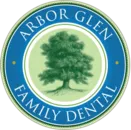Dental Bridges Acton, MA
A bridge is a restoration that replaces a missing tooth by using adjacent teeth to support a prosthetic tooth, called a pontic. Pontics can be matched in size, shape, and color to the teeth they are replacing for a natural appearance.
Why is replacing a missing tooth important?
When you lose a tooth, it affects not just the appearance, but also the function of your smile.
- It can be difficult to eat or speak naturally
- Extra stress is put on your remaining teeth
- You’re at greater risk for developing gum disease
- Your remaining teeth can shift out of position, causing bite problems
- The shape of your face and jaw can change over time
Types of Dental Bridges
There are four common types of bridges, and the type of bridge that is best for you will depend on your preferences, your oral health, and the location and number of missing teeth. Because a bridge requires healthy teeth, gums, and bone for a long-lasting and successful restoration, your Acton, MA dentist will address any existing dental problems beforehand.
Traditional Bridge
Traditional bridges are fixed in place and are anchored by crowns placed on the healthy teeth on each side of the gap. First, the two supporting teeth, known as abutment teeth, are prepared for crowns. This requires removing part of the tooth structure and creating an impression of each tooth. Crowns are created from these impressions and are attached on each side of the artificial tooth, creating the bridge. The crowns are then cemented to the prepared teeth, securing the entire bridge unit in place.
Cantilever Bridge
A cantilever bridge is used when there aren’t teeth available on both sides of the missing tooth to serve as abutment teeth. In this case, a healthy tooth on one side of the gap can be fitted with a crown to hold a single pontic. Because the pontic is only attached on one side, cantilever bridges aren’t recommended for the rear of the jaw, where chewing forces are much more powerful and the extra stress can damage the abutment tooth over time.
Maryland Bridge
A Maryland bridge is a less invasive treatment than a traditional bridge because there is no need for crowns to hold the bridge in place. A pontic is created with two wings made of resin, porcelain, or metal attached to its back. These wings are then bonded to the backs of the two abutment teeth. This type of fixed bridge is often used to replace one or two front teeth; it’s not strong enough to replace molars. Because no crowns are necessary, a Maryland bridge is generally more cost effective than other options.
Implant-Supported Bridge
An implant-supported bridge is a bridge attached to dental implants. Implant posts are surgically embedded in the jawbone and then, over a period of months, fuse with the bone. This fusion provides an exceptionally strong foundation for a bridge. It is more beneficial to consider an implant-supported bridge for several missing teeth, or if the teeth adjacent to the area do not need restorations.
Bridge Treatment at Arbor Glen Family Dental
When preparing for a bridge at our Acton, MA dental office, our dentist will take an impression or digital scan to create a model of your mouth. This model is sent to our lab, where a custom bridge is created. While the final bridge is being fabricated, we will place a temporary bridge to protect your abutment teeth and fill the gap for optimal function.
To maintain the health of your gums and remaining teeth, use a floss threader underneath the pontic in order to remove food debris. Brush the bridge and surrounding teeth at least twice per day with a soft-bristled toothbrush.
